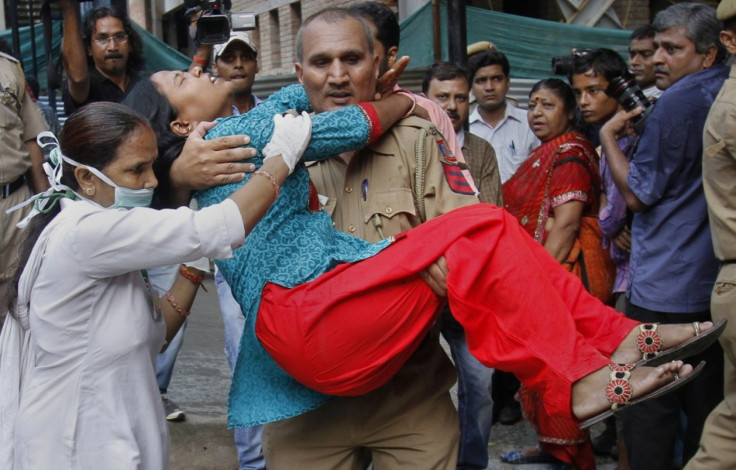First Arrests in Delhi Blast; Terror Readiness Questioned

An Internet café owner in Kashmir has been arrested by Indian police investigating the bomb blast outside Delhi High Court that killed 12 people Wednesday, even as serious doubts emerged about the government's ability to prevent terror strikes on the country.
Senior police officers said an e-mail allegedly sent to the National Investigation Agency by militant group Harkat-ul-Jihad-al-Islami, claiming responsibility for the attack, was sent from an Internet café in the Kishtwar region of Kashmir.
Two other people have been detained for questioning, reports say, even as doubts persisted about the authenticity of the HuJI claim. It has been pointed out that HuJI has not been as active in the region of late as it was before.
The second terror strike near the High Court in four months happened on the eve of the 10th anniversary of the Sept. 11 attacks on the United States. For many Indians, the blast was a stern reminder that while the U.S. has largely prevented terror strikes on its soil in the last decade, India has proved to be too vulnerable.
Following a low-intensity blast outside the High Court in May, the government had decided to beef up security on the premises and install CCTV cameras. However, four months down the line, the plan remained choked in bureaucratic red tape.
The site where the blast took place on Wednesday had no surveillance, making it tough to trace out the operatives behind it.
The Times of India ran the headline Terrorists Strike Yet Again, At Will and said the government could not take lessons from the May attack, which was used by the attackers as a dry run.
According to the Hindustan Times, the bomb used in Wednesday’s explosion had the same composition as that used in the May blast.
Meanwhile, there are doubts that HuJI was the group behind the attack. According to BBC, security sources have also said it was unlikely that HuJI would send an e-mail from an Internet cafe to claim responsibility.
The alleged e-mail by HuJI had demanded the repeal of the death sentence of Afsal Guru, who was convicted of masterminding the 2001 attack on the Indian parliament.
Wednesday’s blast jolted the capital and sent alarm throughout the country. The 2kg bomb, hidden in a briefcase, exploded in the early morning rush hour when litigants were waiting to enter the High Court premises.
Witnesses said the windows in judges' chambers were rattled in the blast, which could be heard as far as three kilometers from the High Court. It was a powerful blast ... there is a lot of blood there, an eyewitness told NDTV.
Prime Minister Manmohan Singh, who is visiting Dhaka, Bangladesh, said, I just heard the sad news from Delhi about the bomb blast. I am told that 10 people have been killed. This is cowardly act of terrorist nature. We will deal with it. We will never succumb to the pressure of terrorism.
© Copyright IBTimes 2024. All rights reserved.




















